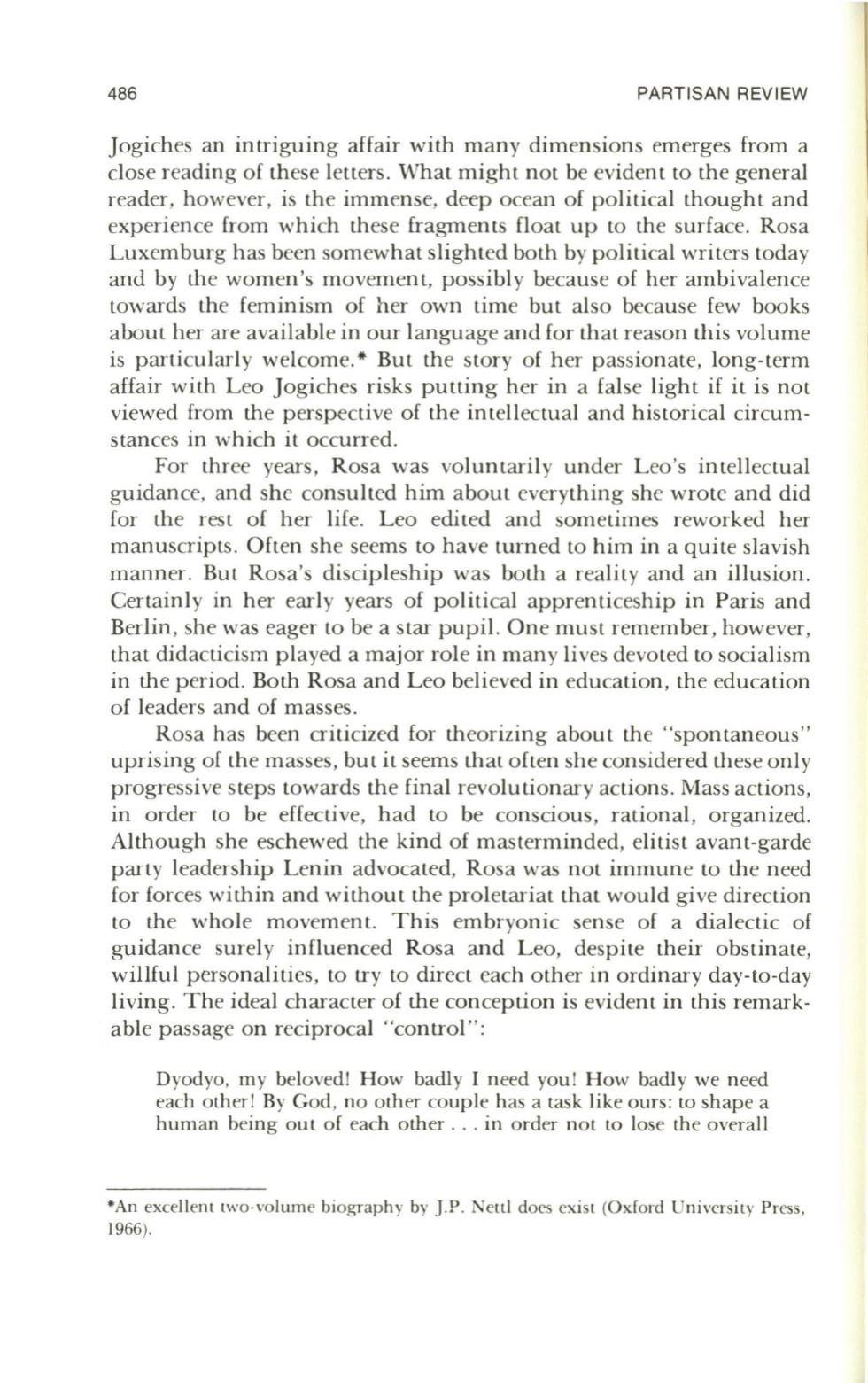
486
PARTISAN REVIEW
Jogiches an intriguing affair with many dimensions emerges from a
close reading of these letters. What might not be evident to the general
reader, however, is the immense, deep ocean of political thought and
experience from which these fragments float up to the surface. Rosa
Luxemburg has been somewhat slighted both by political writers today
and by the women's movement, possibly because of her ambivalence
towards the feminism of her own time but also because few books
about her are available in our language and for that reason this volume
is particularly welcome.· But the story of her passionate, long-term
affair with Leo Jogiches risks putting her in a false light if it is not
viewed from the perspective of the intellectual and historical circum–
stances in which it occurred.
For three years, Rosa was voluntari ly under Leo's intellectual
guidance, and she consulted him about everything she wrote and did
for the rest of her life. Leo edited and sometimes reworked her
manuscripts. Often she seems to have turned to him in a quite slavish
manner. But Rosa 's discipleship was both a reality and an illusion.
Certainly in her early years of political apprenticeship in Paris and
Berlin, she was eager to be a star pupil. One must remember, however,
that didacticism played a major role in many lives devoted to socialism
in the period. Both Rosa and Leo believed in education, the education
of leaders and of masses.
Rosa has been criticized for theorizing about the "spontaneous"
uprising of the masses, but it seems that often she considered these only
progressive steps towards the final revolutionary actions. Mass actions,
in order to be effective, had to be conscious, rational, organized.
Although she esch ewed the kind of masterminded, elitist avant-garde
party leadership Lenin advocated, Rosa was not immune to the need
for forces within and without the proletariat that would give direction
to the whole movement. This embryonic sense of a dialectic of
guidance surely influenced Rosa and Leo, despite their obstinate,
willful personalities, to try to direct each other in ordinary day-to-day
living. The ideal character of the conception is evident in this remark–
able passage on reciprocal "control" :
Dyodyo, my beloved I How badly
I
need youl How badly we need
each other! By God, no other coup le h as a task like ours: to shape a
human being out of each other ... in order not
to
lose the overall
-An
excel lent two-volume biography by
JP.
Nelli does exist (Oxford University Press,
1966).


